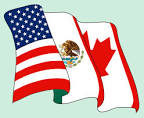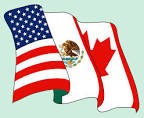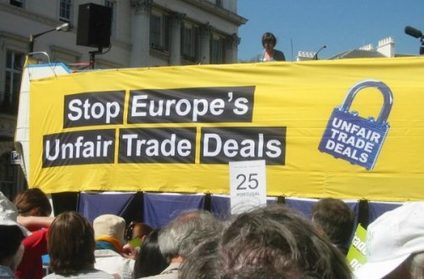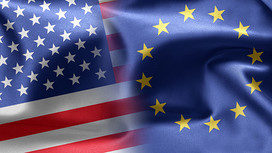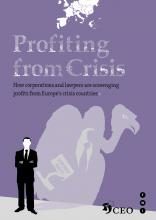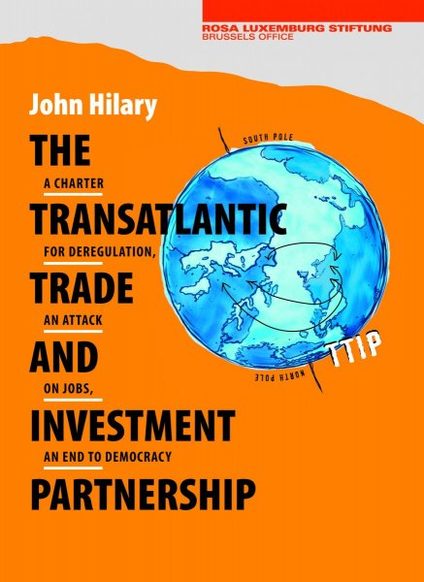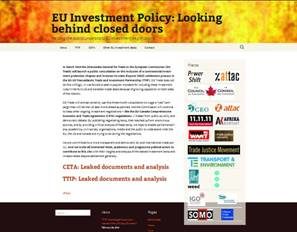NAFTA Report Warns Of Trade Deal Environmental Disasters
Posted on March 12, 2014By Michael McAuliff, March 11th, 2014. Huffington Post.
WASHINGTON -- A report due to be released Tuesday aims to offer an object lesson to President Barack Obama: Free trade deals have high costs in unintended consequences for the environment, people's way of life, and local sovereignty.
The report by the Sierra Club and other groups in Canada and Mexico, released on the 20th anniversary of the North American Free Trade Agreement, summarizes more than 100 nonprofit, government and scholarly studies of NAFTA, and draws a damning picture.
Perhaps hardest hit is Mexico, according to the report, where expanded trade in agricultural products came at the expense of smaller farmers, who couldn't compete with a surge in pesticide-heavy factory farms. Small farmers resorted to cutting down forests to farm more land, and still failed. A boom in mining came at the expense of local landowners, with subsequent industrial pollution.


